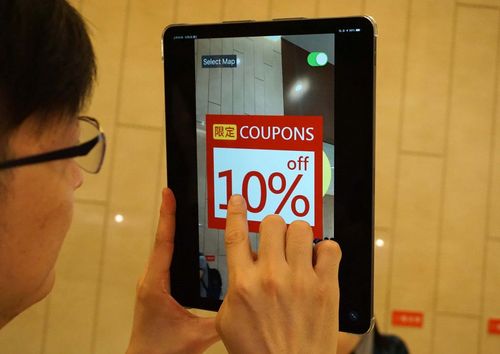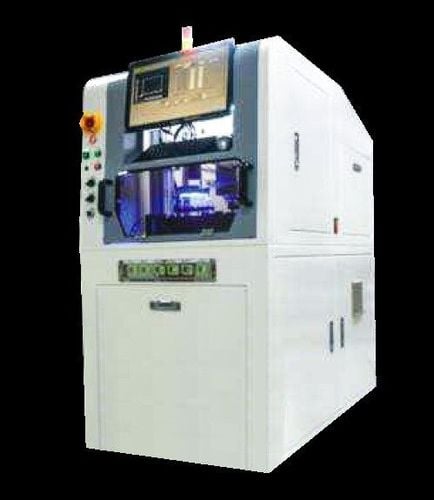【2020 Solutions】 The First Mask Vending Machine in Taiwan Launched! Yeasan Technology Got You Covered!
Taiwan's "mask prevention" strategy in response to COVID-19 has been effective, resulting in the world’s lowest rate of confirmed cases and lowest mortality rates. Yallvend Tech built the first mask vending machine with an interactive screen in Taiwan. It is equipped with mobile payment, returns transaction data, and manages inventory data. It is an embodiment of Taiwan's "epidemic prevention technology."
Yallvend Tech's core service was originally to provide vending machine manufacturers with networking equipment, platform construction, and other vending machine upgrade services. The Central Epidemic Command Center began implementing name-based mask sales on February 6, 2020 to prevent the spread of COVID-19. In February, Yallvend Tech displayed its mask vending machine technology at Ningxia Night Market in Taipei City. It combines facial recognition and blockchain traceability technology in the first smart mask vending machine, which provided 2,000 non-medical masks for free in just one week, benefiting a total of 1,000 people.
Smart name-based mask vending machine in 6 district health centers in Taipei City, completing transactions online
In order to alleviate the queues at pharmacies, a tripartite meeting between the Ministry of Science and Technology, Taipei City Government, and Yallvend Tech reached the decision to place vending machines in the health centers of 6 districts, namely Xinyi District, Wenshan District, Wanhua District, Zhongshan District, Datong District, and Neihu District, one vending machine each. Citizens only need to insert their national health insurance card to verify their identity, and then use mobile payment, including Easy Card, Line Pay, Google Pay, or JKOPay, to complete the payment.
In addition to using mobile payment, Yallvend Tech has also installed simple POS machines in six other health centers, where citizens can quickly swipe their card, make payment, and collect masks at the mask counter. Each health center distributes 200 masks every day for the public to purchase.

▲The mask vending machine makes it simple and convenient to purchase masks, easily preventing the spread of COVID-19
This time, Yallvend Tech cooperated with Taipei City Government and the Central Epidemic Command Center, successfully gained the support of the Ministry of Health and Welfare's open data database, and paired it with the AIoT human-machine interactive display interface from a well-known e-sports display technology company, so that people no longer need to wait in line and instead use their national health insurance card and online payment to buy masks directly at the vending machine. However, this activity will come to an end in July after the epidemic subsides, and the National Health Insurance Administration's open data API may be terminated by then. Interfacing with the largest and most important health insurance system in the country is a dream project for many engineers. Yallvend Tech completed the connection, testing, and launch in just 12 hours, laying the foundation for the subsequent name-based mask system 3.0. This was a major technological breakthrough by Yallvend Tech.
Founded in January 2019, Yallvend Tech has been deeply involved in vending machine upgrade services. The vending machines we generally see all sell drinks. Yallvend Tech provides the technology that has upgraded vending machines to sell tobacco and alcohol overseas and masks in Taiwan.
Yallvend Tech has identified the needs of the Southeast Asian market and actively invested in the development of core technologies, such as physical identity digitization, online payment, and consumer feature identification mechanisms. It not only attracted attention from major manufacturers such as Coca-Cola at the U.S. Consumer Electronics Show (CES) in 2019, but also opened up the international market.

▲Yallvend Tech Team showcases technologies at the CES
For example, alcohol accounts for the highest percentage in the beverage market, but due to the regulations of each country and its physical effect on consumers, many countries will restrict the age for purchasing alcohol, and the same goes for cigarettes. By digitizing identity, smart vending machines will be able to verify the buyer's identity, and buyers who do not meet age requirements will be automatically filtered out. Buyers who meet the requirement can freely purchase tobacco, alcohol, and other products on the vending machines. At present, Yallvend Tech has exported vending machine upgrade solutions that combine identity verification, mobile payment, return transaction data, and inventory data management systems to the Philippines, Singapore, Malaysia, Japan, and Indonesia.
▲Yallvend Tech's product VUK is installed in vending machines on Kokusai Dori in Okinawa, Japan
Two major food and beverage leaders adopt smart vending machine systems
In Taiwan, Yallvend Tech's smart vending machine system was installed in 700 vending machines nationwide by the two leading domestic food and beverage companies. Currently, the vending machines of these two major manufacturers are available in 30% of places close to consumers in factories, offices, and campuses, and real-time promotions will be launched for these vending machines in the future.
In another aspect, Yallvend Tech is also actively developing AI replenishment planning solutions for major beverage companies, hoping to use vending machine data to assist replenishment personnel with replenishing items, route planning, and more efficiently understanding inventory. The company expects to launch related services in about a year.


